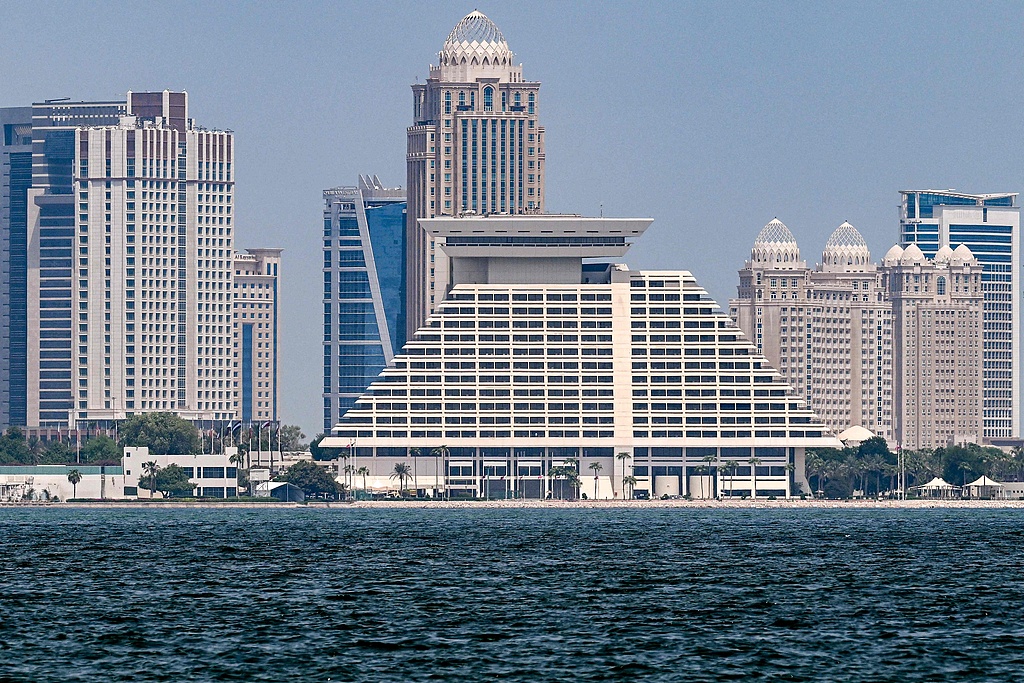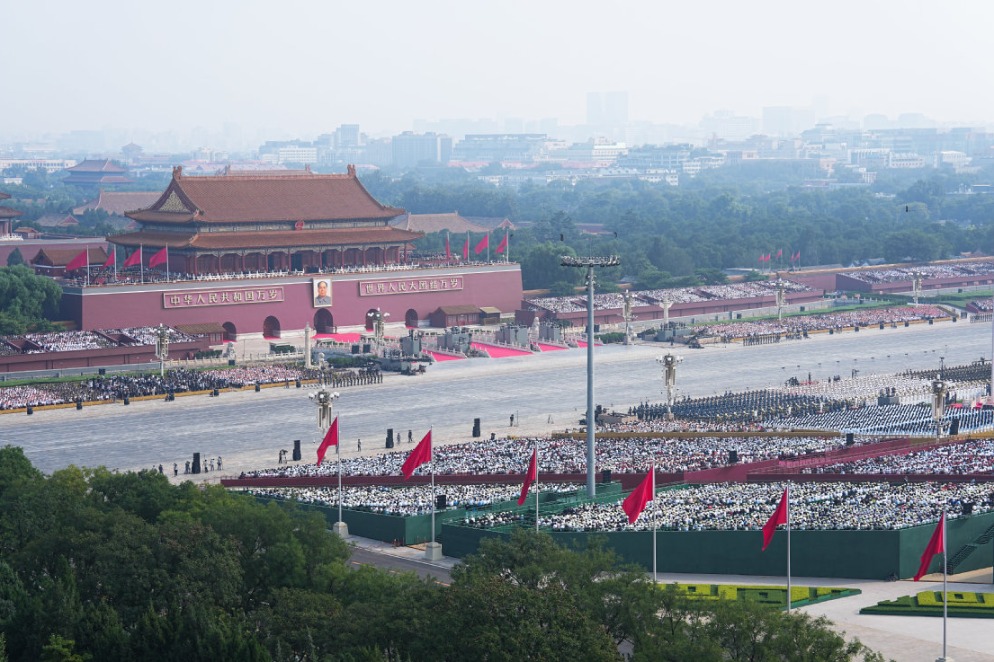Engulfing Middle East in war serves no party: China Daily editorial


The emergency Arab-Islamic summit convened in Doha on Monday, in response to Israel's strike on what it claimed were Hamas targets in Qatar, once again highlighted the urgency of addressing the Palestinian question at its root. The draft resolution circulated at the summit warns that Israel's escalating actions not only threaten regional stability but also risk derailing the fragile progress of normalization of relations between Israel and some Arab states.
The Gaza crisis should not be allowed to escalate further. It makes no sense to tolerate the vicious cycle of violence. History has shown repeatedly that the Palestinian question cannot be solved by military means. Resorting to force only compounds suffering and pushes peace further out of reach.
China has long maintained a consistent and principled stance, insisting that the only viable way to resolve the Palestinian question is the implementation of the "two-state solution". Reconciliation can be achieved and the dream of peaceful coexistence of the Israelis and Palestinians can be realized on that foundation.
The Doha summit also sent a message to the wider international community. Countries with special influence on Israel should fulfill their responsibility to help resolve the crisis at an early date. Certain major powers, instead of placing narrow geopolitical interests ahead of the lives of civilians in Gaza, should recognize that peace in the Middle East is not a bargaining chip in great-power competition. Attempts to use the crisis to cement leverage or divide the region will only prolong the conflict and further destabilize the world.
Almost simultaneously with the Doha summit, US Secretary of State Marco Rubio met Israeli Prime Minister Benjamin Netanyahu in Israel. In his remarks, the Israeli leader did not rule out further strikes on Hamas leaders in the Middle East, and stressed "the resilience and strength of the American-Israeli alliance ... is as durable and strong as the stones of the Western Wall".
Delivered as Arab and Islamic nations urged restraint, the message underlines that despite its expressed discontent with Israel's strike in Qatar and purported longing for peace, Washington's strong backing of Tel Aviv remains unchanged — or at the very least reflects the readiness of the US and Israel to continue scratching each other's back in the region. Such double standards deepen mistrust and complicate international efforts to halt the bloodshed. If Washington is unwilling to put human lives above political calculations, the Gaza crisis risks being further prolonged.
Israel's military prowess and national strength should not be hijacked by the personal political games of individual leaders. The true well-being of the Israeli people does not rest on forcing their neighbors to their knees. It rests on regional reconciliation based on mutual trust and sharing the benefits of peace. Expanding the Gaza crisis into a wider regional conflict serves no party's interests, including Israel's own.
China's commitment to peace has been consistent. At the United Nations General Assembly last week, China voted in favor of the New York Declaration, reaffirming the collective responsibility to advance stability in the Middle East. China has repeatedly called for an international peace conference to place the "two-state solution" back at the center of the agenda. From hosting dialogues to engaging actively with Arab, Islamic, and other partners, China has worked tirelessly to promote dialogue and bridge differences.
The Gaza crisis is a test of the international community's resolve to uphold fairness, justice and humanity. The UN remains the most authoritative platform for upholding international law and advancing the consensus of the international community. Any effort to marginalize the UN undermines collective security and diminishes the chances of a lasting solution.
China firmly believes peace and justice will prevail. The international community must act with urgency, responsibility and sincerity for a ceasefire in Gaza. Only by addressing the root causes of the conflict can the vicious cycle be broken.
The future of the Middle East should not be defined by endless wars but by common development and peaceful coexistence. It is time for all parties to shoulder their responsibilities. The choice is clear: continue down the path of retaliation, or embrace reconciliation through the "two-state solution". Every civilian life lost should spur stronger determination to end the violence.
































